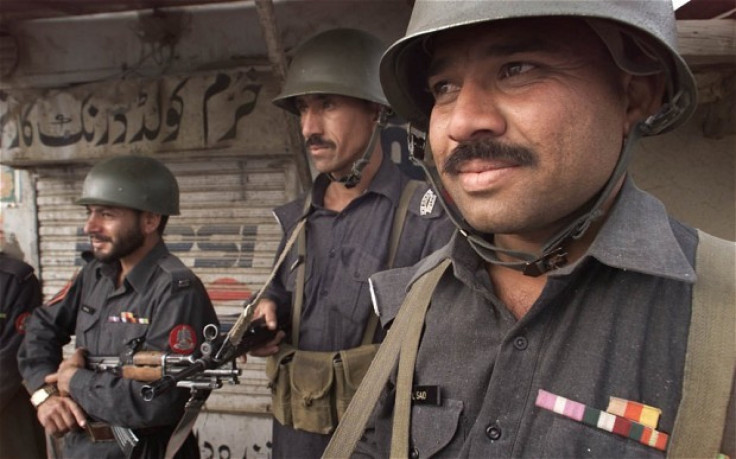Did You Hear The One About The Fat Pakistani Cop?

Pakistan, one of the poorest nations on Earth, does not have the kind of problem with obesity that is found in the affluent nations of Western Europe and the United States -- with one unusual exception.
Policemen who patrol the Punjab, Pakistan’s most populous state, apparently have been putting on the pounds of late -- so much so that senior police officials have demanded that all 175,000 officers in the province slim down by the end of the month or else be moved to desk jobs (where the pay is less) or even be fired.
The cops in Punjab will have to get their waistlines to 38 inches or less in two weeks.
A recent survey found that more than three-quarters (77 percent) of officers in the city of Rawalpindi in Punjab are overweight.
A spokesman for the Punjab police, Nabila Ghazanfar, said about half of Punjab’s total police force is overweight.
“We realize the fact that the department has very few numbers of police officials, and every person is doing job of six persons, so he has not any time to carry out physical exercise,” she said, adding that some officers are already jogging or working out in gyms to take off the unwanted girth.
Azhar Hameed Khokhar, the deputy inspector general of Rawalpindi police, said the directive to lose weight is necessary.
Officers are often working 12 hours a day,” he said.
“That does not leave much time over to look after yourself, to go for a walk or play some sport. If this can help, that must be good. And it's not just police officers, Khokhar added. It's the same everywhere. People have cars, motorbikes and are doing less exercise.
On the whole, less than one-fourth (22.2 percent) of Pakistan’s population is overweight or obese, compared with almost three-quarters of the American public.
While people in the U.S have gained enormous weight over the past three decades due to a steady diet of junk food and declining exercise, Pakistani police are believed to be getting fat as a result of eating too many meals with ghee (clarified butter) and sweet, milky tea.
According to the World Health Organization, 26 percent of women and 19 percent of men in Pakistan are considered obese or overweight, although the numbers are believed to be much larger in the urban areas.
Overall, the rate of obesity in Pakistan has been climbing.
“Pakistan is one of those countries where obesity and diabetes are increasing at alarming rate,” said Dr. Rizwana Waraich, assistant professor at Dr. Panjwani Center for Molecular Medicine and Drug Research.
“Our nation is now facing a double burden of disease as we continue to deal with the problems of infectious disease and under-nutrition; we are experiencing a rapid upsurge in noncommunicable disease risk factors such as obesity and overweight, particularly in urban settings.”
“The higher obesity level in urban areas is due to their changing life style, high fat and carbohydrate-rich diet and lake of exercise,” she added.
© Copyright IBTimes 2024. All rights reserved.











